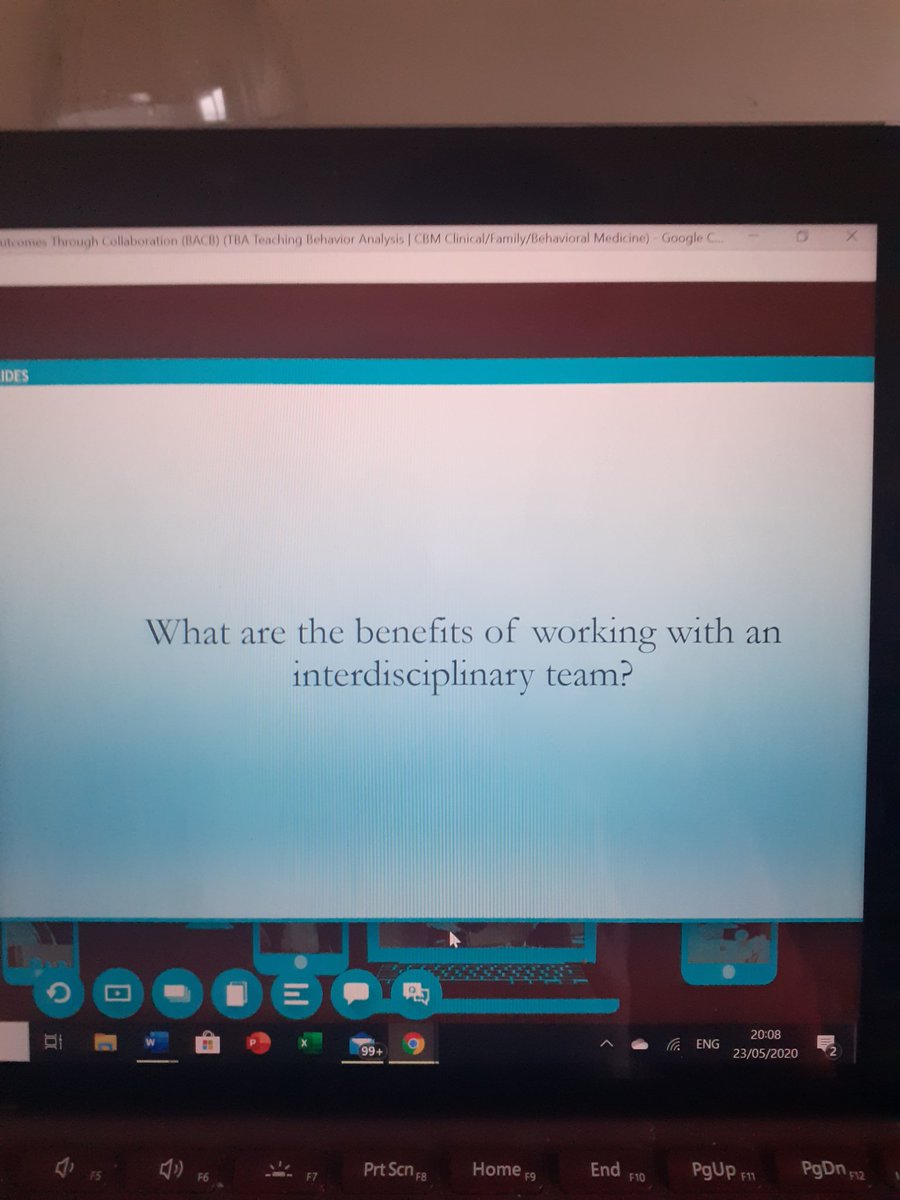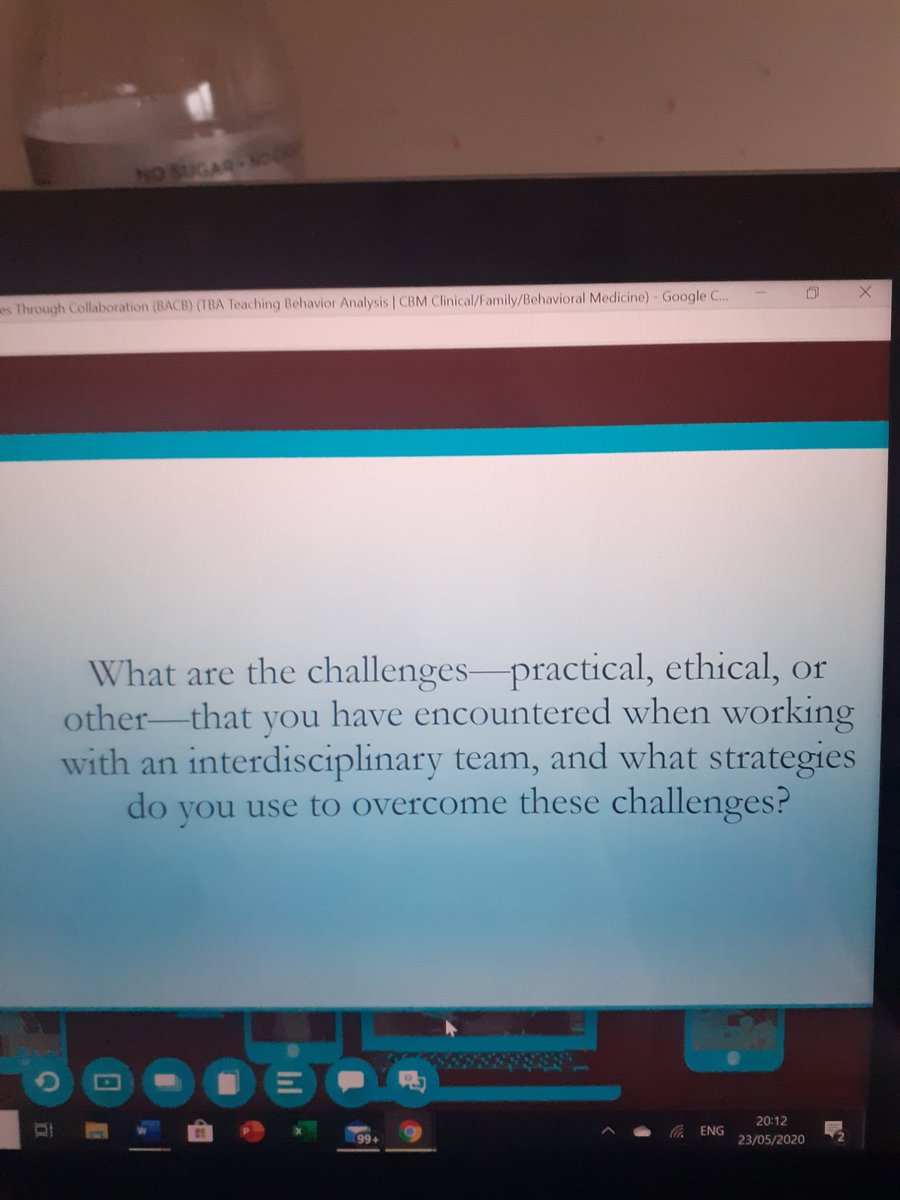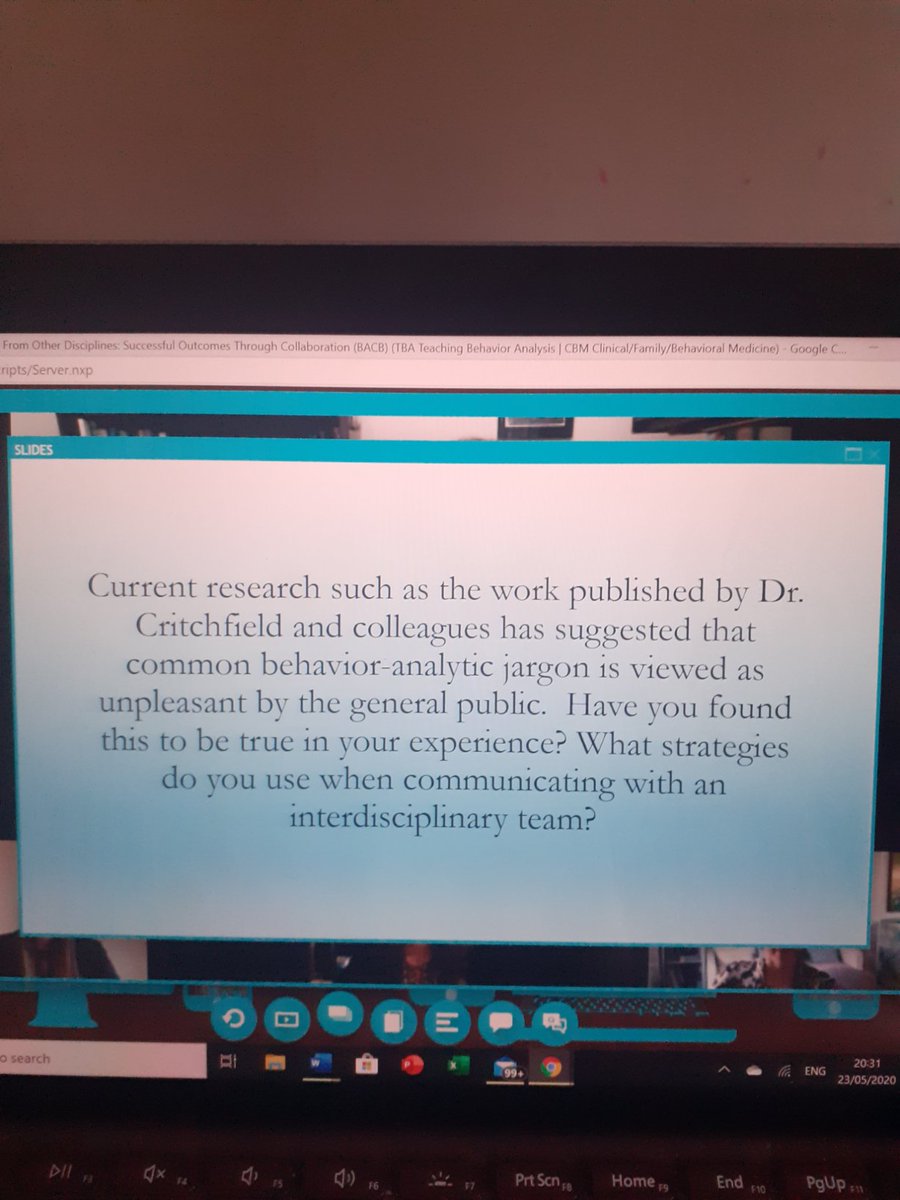- Empowering staff with powerful tools to effect change
- Learning from other disciplines
- Noticing how other disciplines utilise many behavioural technologies & don& #39;t know it
- Compassionate perspective of BA: everyone doing the best they can in their context vs diagnosis led
- Learning from other disciplines
- Noticing how other disciplines utilise many behavioural technologies & don& #39;t know it
- Compassionate perspective of BA: everyone doing the best they can in their context vs diagnosis led
- Working in a team is reported as positive by families
- More integrated care
-
- More integrated care
-
- Sometimes it takes people time to get used to working in teams, having worked in contexts where they are used to having final say
- Teasing out the model: is there a leader that has the final say or is it more democratic?
- Teasing out the model: is there a leader that has the final say or is it more democratic?
- Compromise is key
- Not knowing who is steering the ship, or not one steering the ship can cause issues
- Communication across disciplines can be a difficult learn to skill
- Hard when there are big disagreements or conflicts
- Not knowing who is steering the ship, or not one steering the ship can cause issues
- Communication across disciplines can be a difficult learn to skill
- Hard when there are big disagreements or conflicts
- Understanding different histories and perspectives eg tentative responses to data collection
- Demonstrating you appreciate other& #39;s input
- Knowing the values other disciplines have around change
- Listening to get a sense of other people& #39;s language, jargon and values.
- Translating that into language of own disciplines, becoming fluent in different discourses
- Knowing the values other disciplines have around change
- Listening to get a sense of other people& #39;s language, jargon and values.
- Translating that into language of own disciplines, becoming fluent in different discourses
- Put the legwork in
- Build on existing positive relationships to support change and expansion in new areas eg "how do you think your colleagues will respond to this?"
- Build on existing positive relationships to support change and expansion in new areas eg "how do you think your colleagues will respond to this?"
- Thinking about the impact on family
- Taking data on different approaches
- Taking care not to isolate anyone
- Everybody won& #39;t agree.
- As long as you think there is no harm in a colleagues Team A, try other approaches and offer yours as a plan B
- Taking data on different approaches
- Taking care not to isolate anyone
- Everybody won& #39;t agree.
- As long as you think there is no harm in a colleagues Team A, try other approaches and offer yours as a plan B
- Building strong relationships
- Trust and collaboration
- Can be all too easy to dismiss other disciplines
- Make sure you speak the language of others, speaking to what matters to them, speaking from the heart
- Pick your context. Conferencing aside from or in rounds?
- Trust and collaboration
- Can be all too easy to dismiss other disciplines
- Make sure you speak the language of others, speaking to what matters to them, speaking from the heart
- Pick your context. Conferencing aside from or in rounds?
- Assume the other person is coming at this from a passionate place of really wanting the person to get best care rather than just dismissing you
- Sometimes you compromise, sometimes you dig in where you feel this action is critical for the client and you care about them
- Sometimes you compromise, sometimes you dig in where you feel this action is critical for the client and you care about them
- Please if you are a new interdisciplinary team collaborator do NOT correct someone for using "negative reinforcement".
- Correcting colleagues terminology will not win you friends and influence people!
- Use terms functionally within team context to get buy in. Context matters!
- Correcting colleagues terminology will not win you friends and influence people!
- Use terms functionally within team context to get buy in. Context matters!
- If you have a vision of working in a particular area, try to get experience in that area while you still have supervision/mentorship.
- Build up interdisciplinary relationships - can be really useful to use other professionals as referees in applying to interdisciplinary areas
- Build up interdisciplinary relationships - can be really useful to use other professionals as referees in applying to interdisciplinary areas
- Show vs tell people what value you add
- Curiosity and humility
- Make that genuine: don& #39;t pretend to be curious just to get your foot in the door and then get corrective
- Curiosity and humility
- Make that genuine: don& #39;t pretend to be curious just to get your foot in the door and then get corrective
- Validate past negative experiences with your profession
- If you can, testimonials from people in the person& #39;s profession about how the work you do has supported them on a team can be positive
- If you can, testimonials from people in the person& #39;s profession about how the work you do has supported them on a team can be positive
- If you are asking other people to collect data, don& #39;t ask them to take data you are not going to analyse
- Share graphs and show people how and why you use data
- Use it to show them the good, not the bad! Show how it can show what they are doing is effective reinforcing!
- Share graphs and show people how and why you use data
- Use it to show them the good, not the bad! Show how it can show what they are doing is effective reinforcing!

 Read on Twitter
Read on Twitter







